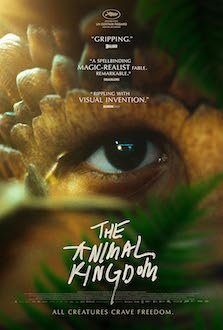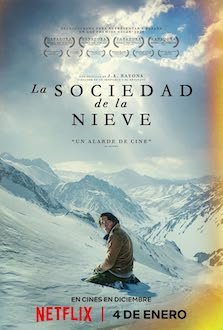Direction: Lisandro Alonso
Country: Argentina / France / other
Lisandro Alonso, the Argentine director of the picturesque neo-western Jauja (2014), returns with Eureka, an ambitious triptych that explores the fate of Indigenous communities in the Americas through a time-lapsing narrative.The film begins as a black-and-white Western set on the U.S.-Mexico border in 1870, shifts to a contemporary Pine Ridge Reservation in South Dakota, and concludes in the Brazilian Amazon rainforest. Each segment is marked by distinct tones and moods, yet they are bound together by a common thread and a quirky migratory bird that traverses time.
Presented with long, static shots and a meditative pace, Eureka demands patience, offering an interplay of feverish dreams and esotericism that contrast with the underlying sadness, depression, and frustration that make everything so human. What is fascinating here is how Alonso is unafraid to shoulder the full weight of a tragic past on a defiantly uncertain future. Yet, you can expect opacity and tedium in a minute, and sharp clarity in the next. The result is a film that oscillates between sensuous beauty and mounting discomfort.
While the first story features well-known actors Viggo Mortensen and Chiara Mastroianni, much of the film relies on non-professional actors, lending an authenticity to the raw, earthy experiences depicted. Nonetheless, the inexplicability of the immaterial can also be found, creating mystery. Eureka is visually stunning, bolstered by the work of cinematographers Mauro Herce (Fire Will Come, 2019) and Timo Salminen (Aki Kaurismaki’s frequent collaborator). Alonso’s influences are felt throughout, evoking shades of Howard Hawks, Werner Herzog, and Ciro Guerra in his profound meditation on time, history, and the enduring struggles of Indigenous peoples.








































